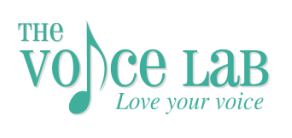One of the first questions I am usually asked by a speech client is “how long will this take?” I’ll often give a general answer based on where their speaking voice already is. Then, fast forward a few months and the client is despondent because they think they are stuck and not making any progress. What I see in that moment is the learning process which is messy and non-linear… and beautiful. To help a few of my clients, I’ve broken down the steps that I’ve observed. I hope it can shed some light on the process for you, dear voice user. Here goes:
1. How your voice works – discovering the possibilities of the voice, coordinating the registers, finding versatility
2. Discovering the tools – learning about pitch, diction, inflection, prosody, etc
3. Using the tools – working these tools into the voice
4. Conscious Application (short sessions) – using the tools to the voice for short amounts of time (could be 30 seconds, could be 2 minutes, could be 10 minutes)
5. Conscious Application (long sessions) – using the tools to the voice for longer amounts of time (a full conversation, half a work day, your inner monologue)
6. Conscious Application (all the time) – using the tools to the voice nearly all the time (a full work day, all conversations with strangers, your inner monologue)
7. Unconscious Application (habitual) – the tools become habitual and the voice begins to react to your emotional impulses without consciously thinking about any specific tool.
If I’m working with a student exclusively on speaking voice, here are some of my general expectations:
– By month 3, we may get to step 4.
– By months 6-9, we may be somewhere between steps 4 and 5.
– By month 10, if they haven’t already been, a student gets kicked out of the nest (in the most loving way possible) to use those tools all the time, coming back only for check ins (or we focus on singing exclusively!).
This timeline depends on many factors, and for some folks their timeline is shorter and for others, it’s longer.
What we think the process looks like:

What it actually looks like:

(It’s a little witchy, yeah?)
Once you get through the basics, to get from step 4 to step 6 and on to step 7, it’s about using the tools as often and for as long as you are able (physically and mentally). Even if you think you are doing it “incorrectly”, you will not be doing it “incorrectly”.
Ok, that’s a lie. You will do this incorrectly, especially in the beginning, and that’s OK. In other words, you may not be able to maintain focus on every aspect of the voice all at once, and we don’t expect you to be able to do so. That takes time.
It will take a lot of brain space to pick apart elements of the speaking voice and noodle around with them, so grant yourself grace. If applying these tools all the time is an overwhelming and daunting task, schedule 5 or 10 minutes in your day to focus on it. Then the next week, schedule 10 to 15 minutes. At the end of those 5-15 minutes, put it into practice: call 1 person – this could be a hotel to ask if they are offering any special rates, or a restaurant/store to ask their hours.
The pedagogical journey we are on is to allow the muscles of the throat to make different decisions and to make new connections in the brain through motor learning.
I hope that this sheds a little light on the process, and I want you to remember that you have already made progress and you are already doing the work.


